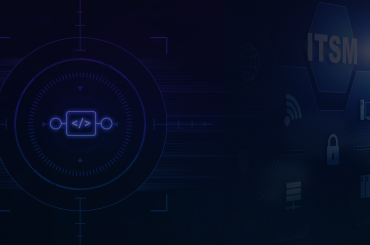Table of Contents
In this article, you will be learning about what managed IT service is, its benefits, and what effective decision-making is about it MSP.
The variety of remote hybrid IT services provided by managed IT services ranges from particular on-demand replies to 24/7/365 providence of IT tasks. Organizations can use managed IT to decrease their internal IT staff’s burden or fill in any gaps in IT responsibilities and expertise. Both private cloud storage and on-premises IT are covered by these services.
Managed IT service providers can lower internal costs, boost IT effectiveness, and manage uptime better. Organizations should check that possible MSPs effectively implement data protection and privacy requirements, nevertheless, to ensure compliance with local, national, and international regulatory bodies.
What is Managed IT Service?
Organizations can outsource IT duties to a contractor as contractual or subscription services thanks to managed IT services. These solutions have the potential to reduce the strain on internal teams, a support staff that are not able to keep up with the demand for IT, or even take the position of internal teams. Managed service providers (MSPs) could bring specialized knowledge or skills that might not otherwise be available, as well as help ensure that IT responsibilities are covered 24 hours a day, 7 days a week.
Most Commonly Used Managed Services Of IT
Managed IT services can encompass many responsibilities but typically include:
- Hardware and infrastructure management and remote monitoring.
- Services related to security, such as monitoring, threat hunting, penetration testing, or incident response.
- Cloud service management, monitoring, and configuration can be provided with managed cloud services or separately from them.
- Support for communications, including services for IP telephony.
- Our guides, Continuous Data Protection and GDPR Data Protection can help you learn more about cloud compliance.
What distinguishes cloud services from managed IT services? – Managed IT Services Vs Cloud Services
What is the difference between the terms “managed IT services” and “cloud services,” which can occasionally be found together?
Cloud services are software products that providers manage and provide on-demand to consumers. Managed IT service companies usually can provide a cloud platform over which their services are provided as part of their service, in contrast to cloud services, which typically incorporate vendor management of application, data, and platform services but typically do not include management of the customer workload itself.
What Are The Different Types Of Managed IT Services?
Understanding the different providers and services that are offered before entering the MSP world is a smart idea. But keep in mind that not every provider will give every service. One MSP might offer all of the above services, whilst another might just offer a select few or even focus on a single service. Regardless, it’s important to be aware of the infrastructure if your company plans to use an MSP.
-
Managed Infrastructure and Networks
With this kind of service, an MSP typically handles all network-related duties. This includes setting up LANs, WAPs, and other connections for your company. They also oversee the storage and backup solutions.
-
Managed Security
The infrastructure for remote security is entirely included in this service. It keeps them up-to-date in real-time and covers anything from BDR solutions to anti-malware alternatives.
-
Managed Support Services
The majority of managed service providers offer this choice. It often includes all IT support services, from troubleshooting to handling complex problems.
-
Managed Print Services
A managed IT services company will remotely help with data and file infrastructure while using this form of managed service. For enterprises with sophisticated file management requirements, it frequently works best.
-
Managed Cloud Infrastructure
Cloud infrastructure management, one of the more thorough categories of services, deals with computing, storage, networks, and IT. Additional virtualization services for apps, software, operating systems, and more might be provided by some providers.
Managed Software as a Service (SaaS)
With this kind of service, suppliers give companies access to a software platform that is often dependent on a subscription. Examples include Office 365, software for worldwide communication, and antivirus programs.
Managed Wireless and Mobile Computing
Wireless connections will be put in place by an MSP that offers managed wireless and mobile computing. Businesses that lack the resources to invest in establishing their own can benefit from this service. Organizations can use these services for internal networks as well.
Managed Communication Services
A variety of communication infrastructures, including VoIP (phone over network technology), data, and video, are offered by this kind of service. An MSP may occasionally function as a third-party call center.
Data Analytics
Data analytics will be desired by businesses searching for monitoring services for data management and use. This solution includes business information to pinpoint particular patterns and develop game plans for improved business performance.
The Benefits Of Managed IT Service
The appropriate managed IT service provider may provide firms with a wide range of advantages. These advantages frequently include:
-
Contract Conditions
With managed services, you can establish contractual conditions for IT tasks like service level agreements (SLAs). As a result, you won’t have to waste time finding, employing, or training IT personnel. By doing so, you can save money by just paying for the protection or services you use and forgo the expenditures involved in keeping full-time personnel.
-
Efficiency
Your staff may be freed to concentrate on projects that will generate money if you outsource IT responsibilities to managed services. These service providers can frequently give advice or suggestions to improve the efficiency of your infrastructure. This may result in higher productivity and better ROI.
-
Better Uptime Management
Unlike your other employees, managed IT service providers do not follow the same timetable. Because of this, service providers can frequently update and maintain their systems after business hours. You will experience higher uptime and fewer disruptions to your workflow when MSPs have flexible schedules to fit around yours.
Conclusion
There are so many topics to address! Businesses will benefit from having coverage for all facets of their IT, thanks to this. They don’t need the personnel or resources to construct it themselves; they may hire a managed IT service provider to meet their demands, whether they are little or large. Finding solutions that fit a small, medium, or large corporate budget is simple specifically with nonrigid service-level agreement plans.




